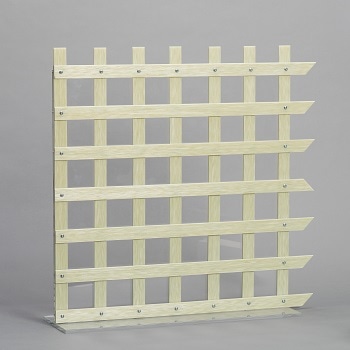BASF has launched a new grade, Elastocoat® C 6226/107, in pre-existing Elastocoat® C range of BASF’s renowned polyurethane (PU) resin, which are used in pultrusion technology for high performance profiles. In contrast to other resins, these PU systems exhibit significant advantages for pultrusion speeds at low pull forces and a high interlaminar shear strength (ILSS) and no emission at the profile.

Product’s Specifications and Applications
This product is opening a range of new application spheres. First, using an innovative catalyst developed by BASF as a basis, this product advancement makes processing temperatures of up to 200 °C possible, which opens new fields of use, for example in automotive or construction applications.
In contrast to its sister products that only allow either one or the other, it can be reinforced with both glass and carbon fiber. Furthermore, it features low viscosity and a pull force of less than 2 kN (Kilonewton).
With this new generation of pultrusion resin, Elastocoat® C 6226/107, BASF is enabling applications that require a high level of temperature resistance, e.g. e-coat processes, along with applications that need a modulus of stability over a wide range of usage temperatures. The material can be manufactured on pultrusion plants suitable for polyurethane with no need for further adjustments.
Temperature and Chemical Stability at Nanoscale Level
“By developing our own new BASF catalyst for polyurethanes and polyisocyanurates, we are now able to fine-tune the reactivity of your pultrusion systems in innovative ways. A lithium chloride salt-based complex, in combination with a special epoxy and internal mold release, controls the reaction pathway between PU and PIR to allow separated PU-rich and PIR-rich segments to be obtained at nanoscale level. The new formulation gains the temperature and chemical stability of a PIR bond by maintaining non-brittle PU mechanical properties,” explains Dr. Julia Liese, laboratory manager in polyurethane research at BASF.
Elastocoat® C 6226/107 Awarded
Elastocoat® C 6226/107 has now been recognized by the German FSK – Fachverband Schaumkunststoffe und Polyurethane with the Innovation Award Plastics and Polyurethane 2019.
“The award provides us with welcome recognition of our work, while at the same time providing an impetus to see this new product become successfully established on the market. The outstanding teamwork exhibited by research, development and marketing made this success possible. The prize confirms for us that we will be able to tap into new markets by developing the high-temperature system,” says Bert Neuhaus, project manager development at BASF.
Source: https://www.basf.com